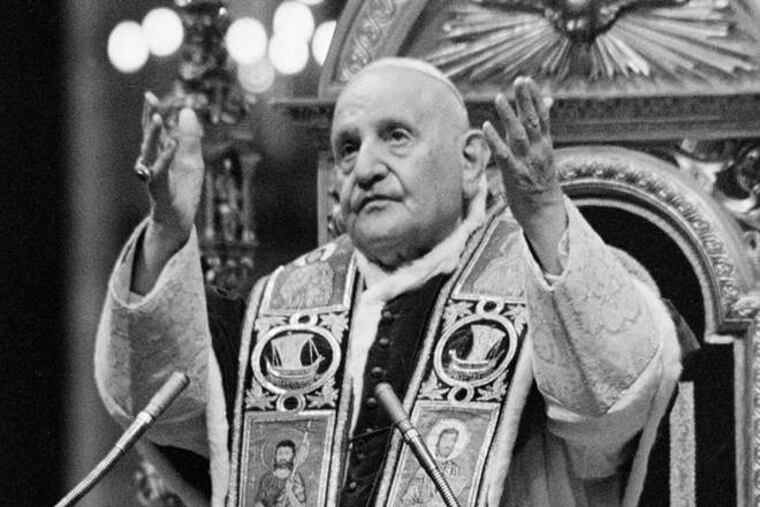John XXIII and John Paul II shared values
Charles J. Chaput is the archbishop of Philadelphia John XXIII and John Paul II, both extraordinary popes, changed the papacy, the church, and the world. But that's not the most important thing about them.

Charles J. Chaput
is the archbishop of Philadelphia
John XXIII and John Paul II, both extraordinary popes, changed the papacy, the church, and the world. But that's not the most important thing about them.
An ocean of words has been written on the two men in advance of their being declared saints Sunday. A common narrative treats them as leaders with very different visions for the church. John XXIII was the brave progressive freeing the church from outdated ideas and rules; John Paul II was the Polish conservative trying to reimpose an older vision of Catholic life.
It's a congenial story line, but only for people who find facts burdensome. The reality of the two men was more complex.
Born of an Italian peasant family and a veteran of the Vatican's diplomatic service, John XXIII was 77 when elected - firmly anticommunist and a traditional churchman in many ways. Within a few months, though, he surprised the world by calling the Second Vatican Council.
The need for a council was not a new idea. It had been discussed internally by leading bishops and theologians for some time. But John XXIII had the courage to pursue it. He hoped a new ecumenical council would reinvigorate the methods, forms, and structures of the church to address the needs of the modern world.
In effect, John wanted to make the church better at what she was called to do, not to reinvent who she is. When he opened the first session of the council, he told the world's bishops that his overriding concern was that "the sacred deposit of Christian doctrine should be guarded and taught more efficaciously."
As John made clear in his great encyclical Mater et Magistra ("Mother and Teacher"), the church pursues her mission of mercy and salvation for the sake of the world. The church must "hold the world in an embrace of love, that men, in every age, should find in her their own completeness in a higher order of living, and their ultimate salvation."
John Paul II was elected in 1978, 15 years after John XXIII's death. He was the youngest pope since Pius IX in 1846 and the first non-Italian in 450 years; a former quarry worker, actor, and scholar; a man who had survived the devastation of his homeland and two bloody totalitarian regimes in a row.
John Paul was also a bishop who'd been active at the Second Vatican Council, where he had helped draft some of its key documents. One of these, the "Pastoral Constitution on the Church in the Modern World," Gaudium et Spes, was the text that most vigorously threw open the windows of the church. In his first address after being elected pope, he declared that he believed it his "primary duty" to promote "the most exact fulfillment of the norms and directives of the council."
And that is what John Paul did for the 26 years of his astonishing papacy, traveling to every corner of the globe and producing a vast body of teaching - on the family, on mercy, on workers' rights, on faith and reason, on art and culture, on the dignity of women, the elderly and the unborn child, and on too many other issues to name - that dwarfs the work of any previous pope.
But the church doesn't acknowledge these two great popes as saints because they were innovative CEOs, or because they were somehow free from human flaws or weakness. She declares them saints because in her judgment, these men were genuinely holy. People become saints not because they're perfect and not because they do things well, but because they follow in the footsteps of Jesus Christ in a heroic way.
Those who focus on the politics of the church in the last 50 years and dwell on the perceived differences between John XXIII and John Paul II are missing a much larger point. The two great popes being canonized Sunday were united in everything that matters. They were different in personality, and different in the urgent problems of their time; but they were one in heart and mind, and in their love for God and his people.
That unity is what we need to see in John XXIII and John Paul II. Their lives are part of the same grand narrative, the same story of discipleship. That remarkable witness is what Pope Francis and all Catholics celebrate today.